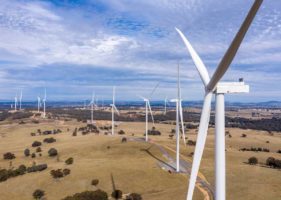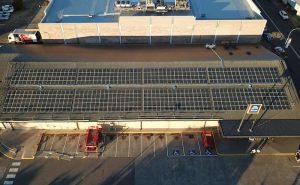Australia’s hydrogen industry will have the chance to participate in a federal government-backed certification of origin scheme for hydrogen as it prepares to seize the massive economic opportunity being created by a burgeoning market for green hydrogen.
Both industry and environment groups have advocated for the creation of a certification of origin scheme for hydrogen, allowing hydrogen produced using sources of renewable energy to be differentiated from hydrogen produced using fossil fuels.
Hydrogen has been touted as a key solution for decarbonising a wide range of hard to abate sectors, including transport and metals processing. Still, concerns have been raised about hydrogen produced using fossil fuels to undermine the potential emissions reductions benefits.
The federal government is in the process of developing a Hydrogen Guarantee of Origin (GO) scheme that would allow supplies of hydrogen to be certified with information confirming its method of production, the emissions intensity of its production and whether it has been produced using renewable energy sources.
On Friday, the Clean Energy Regulator announced that it would commence a pilot trial to test early designs for the GO scheme. Chair of the regulator, David Parker, said the scheme pilot would help test its application to a range of hydrogen production methods.
“The GO scheme will allow consumers to choose products based on the hydrogen’s carbon emission intensity,” Parker said.
“GO certificates will follow the hydrogen supply chain, providing transparent information to consumers on the carbon intensity of products they purchase.”
“Trial participants will help develop emission accounting approaches suited to their production techniques, giving industry and supply chain partners confidence in the GO scheme and encouraging investment in hydrogen projects.
Parker said the regulator anticipated the guarantee of origin scheme could eventually be expanded to a wider range of low carbon products, such as green steel and aluminium.
“The GO trials will play a significant role in determining international standards for measuring carbon emissions from hydrogen production and establish Australia as a global player in the emerging hydrogen industry for years to come,” Parker said.
“We expect the GO scheme to evolve to guarantee the origin of a range of low emission products, so these trials are an important step in reducing Australia and our trading partner’s emissions.”
Speaking at the Emissions Reduction Summit in Sydney on Thursday, Parker said that carbon accounting could ultimately expand to cover the entire supply chain of goods allowing information to be provided to consumers about the emissions footprint of a wide range of products.
“I think probably by 2030, we might see what you could call supply chain carbon accounting. That is, when a product comes to market, you will know what the carbon content of that product is,” Parker told the summit.
“If you buy a dishwasher or fridge these days, it tells you how much electricity it’s going to use, how much water it’s going to use.”
“I suspect that eventually, we’ll get to a point where you go and buy one of those things, and you will be told how much carbon is embodied in the product. And I think we’ll see that very broadly across a whole range of things,” Parker added.
The Smart Energy Council, which has been leading the development of a separate Zero Carbon Certification Scheme for hydrogen, ammonia and green metals, welcomed the announcement of the trial, but called on the federal government to focus on the certification of hydrogen produced using renewable energy.
“It is critically important from an economic and environmental perspective that the Australian Government focuses exclusively on renewable hydrogen, ammonia and metals projects,” Smart Energy Council CEO John Grimes said.
“That is what the international market is demanding, and that is what will help deliver Australia’s international climate change commitments.”









